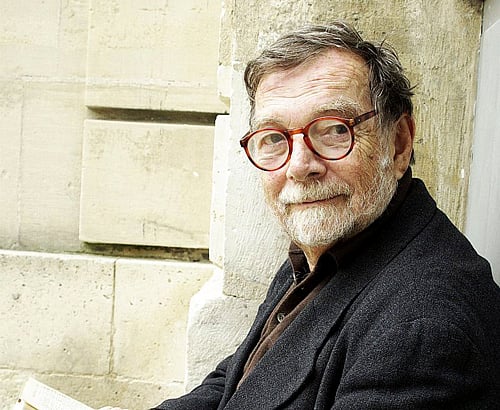
Andre Schiffrin, the literary editor who gave readers Art Spiegelman, Michel Foucault and Studs Terkel before he was forced out of commercial publishing in a defining battle between profits and literature, has died in Paris. He was 78.
Schiffrin, who died Sunday of pancreatic cancer, had sought out authors through his final days, dividing his time between New York and Paris as founding editor and editor at large of the nonprofit New Press, said Ellen Adler, the imprint's publisher.
Schiffrin founded the New Press after his highly public departure from Pantheon Books in 1990. At least four other Pantheon editors walked out with him, as did numerous authors. He said he feared for the future of independent ideas in a publishing world increasingly driven by advertising and profits. He believed the best hope for literature was small- and medium-sized publishers.
"The main thing is they decide a book on its merit and not its potential contribution to overhead and profit expectation," he told The Associated Press in a 1990 interview.
Embracing his identity as a corporate gadfly, Schiffrin's record of success with the New Press included the Pulitzer Prize-winning "Embracing Defeat" by John Dower and "The New Jim Crow" by Michelle Alexander. In his own books and interviews, Schiffrin argued that corporate control was incompatible with literature and threatened free expression.
That wasn't to say that Schiffrin's tastes were incompatible with readership. Pantheon, where his father Jacques was among the founders, married the avant-garde left and the mainstream. The two were held together by Schiffrin's belief that a good book will always find readers.
Schiffrin was born into a Jewish family in Paris on June 14, 1935. The Nazis marched into the city on his fifth birthday, and the following year his family fled to the United States. He began working at Pantheon shortly after Random House bought it in 1961.
Terkel, the late Chicago-based radio host and oral historian who was among Schiffrin's best-selling writers, once described Schiffrin as his "muse." But most of Pantheon's books, which tended to a leftist social advocacy that had gone out of style by the 1980s, reached a far narrower audience.
The Random House CEO at the time said he was "publishing a lot of books that no one wanted to read." Schiffrin was asked to cut back staff and titles. Instead, he resigned.
The response was unprecedented.Arthur Miller, Nadine Gordimer, and Amy Tan were among authors to sign an ad critical of Schiffrin's treatment. More than 200 writers protested outside Random House headquarters, including Kurt Vonnegut, E.L. Doctorow and Terkel.